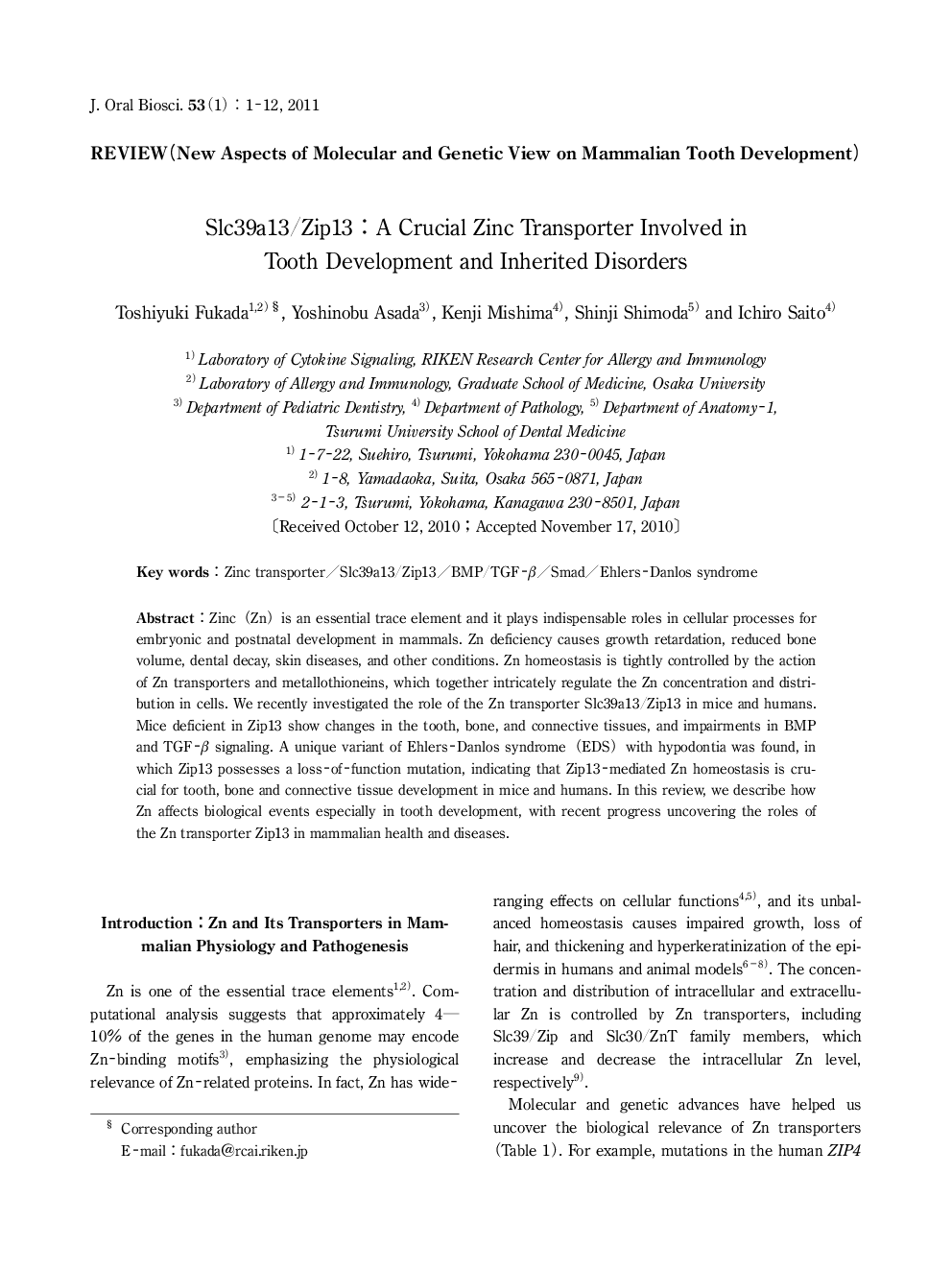| Article ID | Journal | Published Year | Pages | File Type |
|---|---|---|---|---|
| 2776926 | Journal of Oral Biosciences | 2011 | 12 Pages |
Zinc (Zn) is an essential trace element and it plays indispensable roles in cellular processes for embryonic and postnatal development in mammals. Zn deficiency causes growth retardation, reduced bone volume, dental decay, skin diseases, and other conditions. Zn homeostasis is tightly controlled by the action of Zn transporters and metallothioneins, which together intricately regulate the Zn concentration and distribution in cells. We recently investigated the role of the Zn transporter Slc39a13/Zip13 in mice and humans. Mice deficient in Zip13 show changes in the tooth, bone, and connective tissues, and impairments in BMP and TGF-β signaling. A unique variant of Ehlers-Danlos syndrome (EDS) with hypodontia was found, in which Zip13 possesses a loss-of-function mutation, indicating that Zip13-mediated Zn homeostasis is crucial for tooth, bone and connective tissue development in mice and humans. In this review, we describe how Zn affects biological events especially in tooth development, with recent progress uncovering the roles of the Zn transporter Zip13 in mammalian health and diseases.
